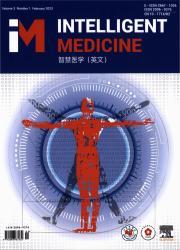Artificial intelligence and digital twins: revolutionizing diabetes care for tomorrow
IF 6.9
Q1 COMPUTER SCIENCE, INTERDISCIPLINARY APPLICATIONS
引用次数: 0
Abstract
Artificial intelligence (AI) and digital twin technologies exhibit significant potential in analyzing and integrating multidimensional datasets and offer novel perspectives for the management of chronic diseases including diabetes. These technologies offer opportunities for personalizing treatment and potentially reversing the conditions. This review systematically evaluated the advantages and limitations of AI applications, potential for predictive analytics in formulating personalized management strategies, and practical roles of AI and digital twin technologies in diabetes diagnosis and treatment. Special attention was given to their strengths and weaknesses in disease prediction, early detection, and development of individualized management strategies.
AI algorithms have demonstrated great efficiency in analyzing large datasets, aiding in the early identification and intervention of prediabetes. Machine learning algorithms, including deep learning neural networks, integrate lifestyle, genetic, and other influencing factors to accurately predict the progression of prediabetes to diabetes. Moreover, AI-driven wearable devices and mobile applications provide real-time monitoring and personalized guidance, thereby effectively mitigating diabetes. This study also explored the challenges of integrating AI and digital twin technologies into clinical practice for diabetes management and broader healthcare domains, focusing on data privacy, need for diverse and comprehensive datasets, and the importance of integrating AI tools into clinical workflows.
人工智能和数字双胞胎:革新未来的糖尿病治疗
人工智能(AI)和数字孪生技术在分析和整合多维数据集方面显示出巨大的潜力,并为包括糖尿病在内的慢性疾病的管理提供了新的视角。这些技术为个性化治疗提供了机会,并有可能扭转病情。本文系统地评估了人工智能应用的优势和局限性,预测分析在制定个性化管理策略方面的潜力,以及人工智能和数字孪生技术在糖尿病诊断和治疗中的实际作用。特别注意了它们在疾病预测、早期发现和制定个性化管理策略方面的优缺点。人工智能算法在分析大型数据集、帮助早期识别和干预前驱糖尿病方面表现出极大的效率。包括深度学习神经网络在内的机器学习算法整合了生活方式、遗传和其他影响因素,以准确预测糖尿病前期向糖尿病的进展。此外,人工智能驱动的可穿戴设备和移动应用提供实时监测和个性化指导,从而有效缓解糖尿病。本研究还探讨了将人工智能和数字孪生技术集成到糖尿病管理和更广泛的医疗保健领域的临床实践中的挑战,重点关注数据隐私,对多样化和全面数据集的需求,以及将人工智能工具集成到临床工作流程中的重要性。
本文章由计算机程序翻译,如有差异,请以英文原文为准。
求助全文
约1分钟内获得全文
求助全文
来源期刊

Intelligent medicine
Surgery, Radiology and Imaging, Artificial Intelligence, Biomedical Engineering
CiteScore
5.20
自引率
0.00%
发文量
19
 求助内容:
求助内容: 应助结果提醒方式:
应助结果提醒方式:


